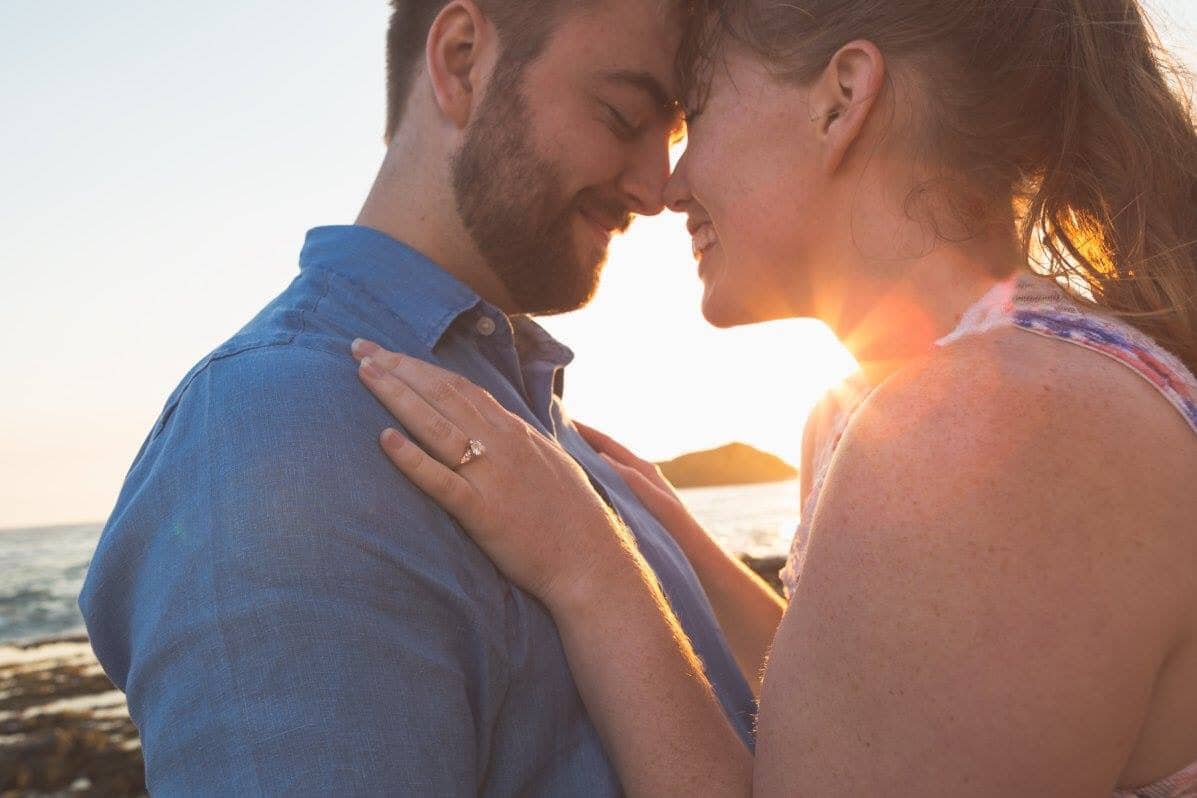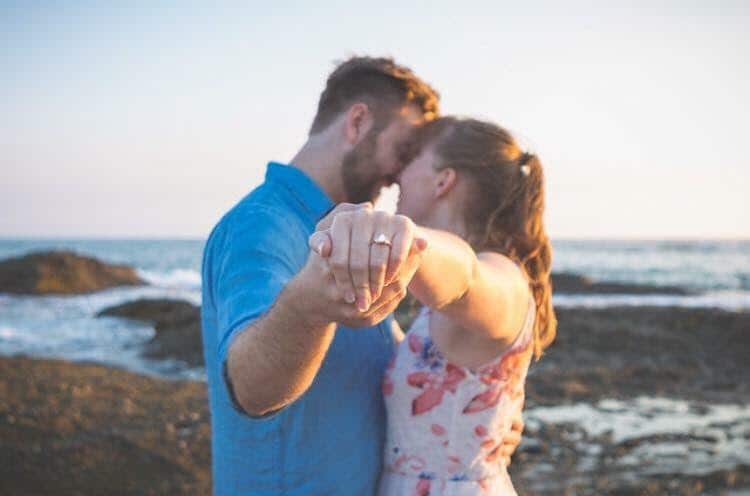Love is love.
Interracial relationships are beautiful.
This country didn’t always think so, however, since it wasn’t until less than 50 years ago that it became legal for mixed race couples to marry.
On June 12, 1967, the Supreme Court struck down state laws which banned individuals of different races from marrying in the Loving v. Virginia decision. Sunday marks the 48th annual celebration of this progressive milestone, aptly named “Loving Day.”
“I see Richard and Mildred Loving as strong yet soft-spoken heroes for me, my family, and generations to come,” Loving Day founder Ken Tanable wrote of the couple who helped make this decision possible. “They simply loved each other and wanted equality for all. This basic notion of celebrating love continues to be just as important today. I strongly encourage everyone to learn more about them and the gift they left us. Through knowledge, shared stories, and support, we can build a community that believes love is love.”
To celebrate Loving Day, HuffPost Black Voices asked its readers who are in interracial marriages and relationships to share their love with us. We received 30 responses from couples echoing Tanable’s sentiments and telling why their love matters. Their love for each other is absolutely heart warming.
Check out these wonderful couples below and if you’re in an interracial relationship, tell us why your love matters in the comments sections below.
TaRaea and Bryan
“My husband and I have been married for almost 4 years and together for almost 9 years. Both of our parents are in interracial marriages that have lasted 30+ years.Our parents embodied the freedom to love someone based on who they are, regardless of their skin color. We are immensely thankful for Mr. & Mrs. Loving for fighting for the basic human right of marring whomever you want.” – TaRaea Todtenhoefer
Keosha and Jonathan
“Our interracial relationship matters because love isn’t simple but family is. We are getting married in August of this year, and it each day I see the strength in our love and our family. I have no need to prove our love to people who assume we are not together because the idea of a black woman and a white man being in love is beyond their reality, and quite frankly, confuses them. I cannot stop people who see me holding his son’s (now my son’s) hand in the street from assuming that I am the nanny. Not seeing our love makes things complicated and fuels an ignorance that has plagued our society for generations. I realized that I cannot fix those thoughts in people. I can just love my family. Yes, I am Black and he is White but more importantly, he is the man that loves me. And just as important, I love him.” – Keosha Bond and Jonathan Shank
Franklyn and Niki
“My relationship with my girlfriend Niki matters to me because I can freely love someone who makes me a better person and keeps me happy. She understands that being with me will be a challenge, especially in a world where some people think interracial couples are to be looked down upon. One of the most important things about my relationship is that she loves me being unapologetically Black.
The amount of love I feel isn’t quantifiable. I’ve been with Niki for less than a year, and we’re already having our first child, but I feel so connected to her in multiple ways. Knowing that less than fifty years ago, she and I could have never been together is a daunting thought. When loving someone becomes a crime, upheld by white supremacy, I think of how fortunate I am to have someone like her.” – Franklyn Brown
David and Karl
“My relationship with my partner, Karl, matters most of all because we support each other, bring joy to each other, and help challenge each other to become our best selves.
But in doing that, we daily commit “personal as political” acts that we believe have an impact, however subtle, on how others perceive both race and sexual orientation. As an interracial couple, we demonstrate that individuals of different races have more in common than not. This is particularly important in the gay community where race continues to be a polarizing factor in the pursuit of sexual and romantic interactions. In the hetero-normative world, our presence has a double impact, helping to break down pre-conceived notions regarding racial divisions as well as challenging others regarding how they view same-sex relationships.A recent event serves as an illustration: we attended Karl’s 25th college reunion at Colgate University in early June. By publicly identifying and acting as a loving couple in a mostly white and heterosexual environment, our presence required his classmates, other attendees, and their families to acknowledge our legitimacy as a gay couple and as an interracial couple. As we also attended several events for Alumni of Color, we served a similar purpose in those social situations.” – David Pasteelnick
Jasmine and Roope
“My wonderful partner, Roope, was living 4000 miles away in Finland when we met during his first visit to New York City in 2014. We fell in love deeply and quickly soon after that. Our interracial relationship matters because we can live, laugh, and love out in the open and free of ridicule, which is a privilege that I know many still do not have even in 2016. We have both learned a lot about each other’s cultures and how different life is when you’re both a different race and nationality in America. Our relationship has opened both our minds to each other’s worlds and, I think, we’ve become better people because of it.“ – Jasmine Bayron
Sharon and Vincent
“Love transcends racial and cultural differences. Although we come from very different backgrounds, the two of us share important values. The silk screen in the background of our wedding picture says it all, ‘One Race-Human-One Love.’” – Sharon Dole
Chima and Laura
“Since youth, I was told that I was only allowed to marry a girl of my own race. I was warned that straying away from my dark brown skin was unethical, and unacceptable. I was informed that a relationship outside of my melanin could never work. Until I met my Laura. She was the first person to ever disprove the warnings I had been given, and helped me realize that I can truly spend my life with someone despite our differences in pigmentation. My relationship matters, because in Laura, I found a best friend, a lover, and a soon to be wife. None of this would have been possible without Loving v. Virginia.” – Chima Odinkemere
Tre and Jamie
“We are not a couple because of, or in spite of, our race or ethnicity. We are with each other because of the individuals we are and the love we share. Race and culture play a big part in our identity and life, but what makes us appreciate one another is how we as individuals integrate our experiences, think about things, and react to situations. We both believe that our relationship is more interesting than any previous, and part of the reason is our differing races. We have learned a lot about diversity from one another. While we have learned more about the cultures each one of us is from, we have also found that our relationship has made us more understanding of how individuals from all different cultures vary in amazing ways. Noticing differences in race and ethnicity does not make us think that people should be separated by their skin tone, but rather, it makes us realize that we should all come together because we have so much to learn from one another. (And we have so much different, delicious food to share among cultures!) We choose to share what we have learned from our interracial relationship with family, friends, and classmates in the hopes of spreading, understanding and promoting acceptance of diversity. The two of us have been open and honest about race and its impacts on our relationship and society as a whole from the beginning and we will continue to do so, even if the conversations get tough. All in all, we know that we are in an awesome relationship and we wouldn’t trade it for anything.” – Jamie Bergmiller
Susanna and Nikia
“My interracial relationship matters because I want our future children to look at us and experience freedom, on so many levels. When kids can see the future of the world in front of them, a reality that has overcome (but continues to fight) racism, homophobia and sexism, then we start to see real change in our lifetime. I want them to live in and celebrate that freedom.” – Susanna Speed
Darrell and Keia
“My interracial relationship matters because it shows what love really is. Two people being brought together to share their life. Skin tone should not be deal breaker for anyone. Loving a person’s heart, mind, and spirit is what’s important. Looks will fade but knowing you are with someone that is your partner in life (and sometimes crime lol) is what matters when my boobs drop and his six pack fades, we will be sitting on the porch talking crazy to another. #loveislove” – Keia Foster
April and Parker
“This is my boyfriend Parker and I. We met as campus counselors in Oklahoma. We met from his sister introducing us and we hit it off right before sophomore year of college! We found out we both went to the same college and from there it was chemistry! I love him so much and wouldn’t change a thing. We have been together for almost two years. Our interracial relationship matters because we love each other beyond our skin color and our cultures. We have to fight everyday basic prejudice from others, but we know we want to have a life together one day.Our families were initially hesitant but are both behind us. We do plan to marry soon. Our relationship matters for other people like us who want to love in the open without being banned from their families and they just want to love who they want freely. #LovingDay” – April Garrett
Olivia and Matt
“There are so many reasons why he is my person, but one reason he’s special is because he is so incredibly woke. I’ve never met a white man that tries so hard to be in tune with the black American experience. He’s been raising his adopted 17 year old African-American brother for the past 5 years since his mom passed. From watching (and re-watching) “Lemonade” or “Girlhood” to attending panels with Janet Mock and Angelica Ross or discussing the PBS Black Panthers documentary, he’s such a gem! I was so nervous to show him my natural hair, but on this day, he said he wanted to get “crown crunk.” It’s not the most flattering picture of us, but I love it. And him ✨” – Olivia Morris
Adia and Benjamin
“My relationship matters because it’s rooted in our shared faith in God and deep respect for who were are as individuals. Our relationship has helped bridge the gap on a small scale; of cultural divides in our social circles. This is my first inter-racial relationship and his and we’ve learned there are differences, but not as many as we both originally believed. Loving Ben is like home to me, a home that has no color or limitations.” – Adia Hamer
Nora and Todd
“Our interracial relationship matters because we prove to the world everyday that love has and should have no boundaries. We have been together for 25 years and have 3 amazing children. We have experienced our share of racism and bigotry from all sides but we remain and will remain steadfast in our conviction that love sees no color, and despite hardships our love is stronger and our bond is unbreakable.“ – Nora Johnson
Altheria and Francisco
“Francisco is as proud of his Mexicanness as I am of my Blackness! Instead of pretending to be blind to our differences, we acknowledge our cultural backgrounds as they have helped shaped us into the individuals we each love and admire. Our distinct cultural traditions make our lives rich and vibrant! We watch Mexican soccer and we watch U.S. football. We celebrate Dr. Martin Luther King and we celebrate Cesar Chavez. We eat tortillas and we eat cornbread. We listen to Maná and we listen to Beyoncé. We speak English, and we speak Spanish.
As individuals of color, we have a shared consciousness of how colonialism and racism and nativism and capitalism continually work together to oppress our folk. Our relationship matters for many reasons, but perhaps most importantly because we are a symbol of resistance. We resist those who want to define interracial love as deviant. Our union is not miscegenation. There is nothing “mis” or “bad” about it. Instead, it is a striking amalgamation of all the richness that our cultures means to us. Our relationship matters because we choose to live and love in a society that is intent and strategic in positioning Mexicans and Blacks at odds with each other. We resist this positioning. Through our friends and family, we are purposeful in bringing members of both ethnicities together. We were married on March 28 last year in Guadalajara, Mexico. Since our first date in 2012, we have visited more than ten countries together, our mere presence attesting to our right to choose the partner who makes our hearts sing and to the beauty of Blexican love!” – Altheria Caldera
Curated by Erbe
Original Article






 The
The 
